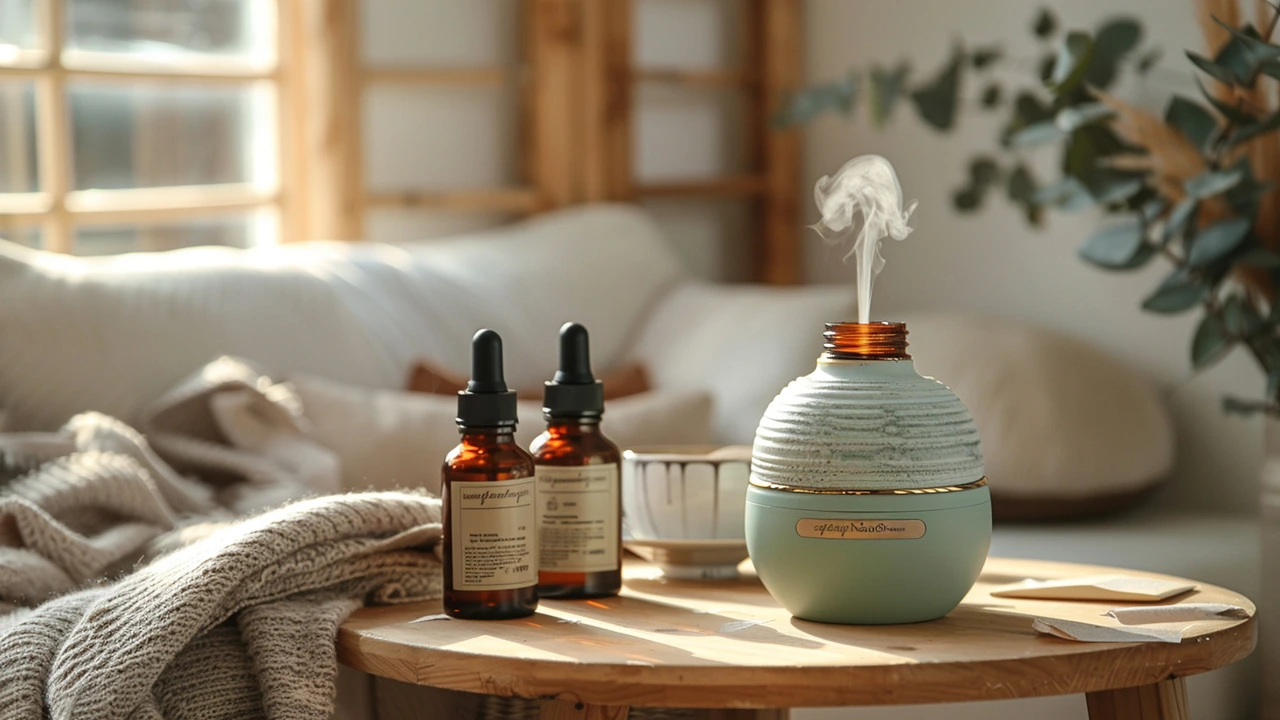Unlocking the Mysteries of Aromatherapy: An Introduction
Aromatherapy might seem like a modern trend, but its roots dig deep into the heart of history, blossoming in ancient civilizations such as Egypt, China, and India. They understood the potent power hidden within the fragrant essences of plants and flowers. It's more than just pleasant scents; it's a bridge to physical, emotional, and spiritual well-being. At its core, aromatherapy involves the therapeutic use of essential oils extracted from a wide array of plants, each carrying its unique healing properties. These oils can be inhaled directly, diffused into the air, or applied topically, always with a mind towards harnessing their innate power to heal, soothe, and rejuvenate.
The fascinating aspect of aromatherapy lies not just in its history or application but in the biochemical dance that happens when essential oils interact with our bodies. Picture this: with just a single breath, molecules from these oils embark on a journey through our olfactory system, reaching deep into the brain's limbic system - the headquarters of emotions, memory, and arousal. This direct link explains why certain scents can instantly trigger vivid memories or profound shifts in mood and why the practice of aromatherapy can wield such transformative effects on both the mind and body.
A Deep Dive into the Sciences Behind Aromatherapy
The power of aromatherapy is not solely based on anecdotal evidence; a growing body of scientific research supports its benefits. A key player in understanding how aromatherapy works is the limbic system, as previously mentioned. This isn't just about emotional responses, though. Studies show that certain essential oils, when inhaled or applied, can influence physical health in tangible ways. Lavender, for example, is not just soothing to the soul; it's been shown to lower blood pressure and heart rate, lending credence to its use as a natural remedy for anxiety and insomnia.
But how do essential oils achieve these effects? It's largely due to their chemical composition. Essential oils are complex mixtures of compounds, each with specific properties. Some, like eucalyptus, have potent antimicrobial effects against certain bacteria, fungi, and viruses, making them invaluable allies during cold and flu season. Others, such as peppermint, contain compounds that can alleviate digestive issues and headache pain. This intricate synergy of compounds within each oil is what makes aromatherapy a multifaceted tool for healing.
Embarking on the Aromatic Journey: How to Use Essential Oils
Beginning with aromatherapy might feel like standing at the edge of a vast and fragrant sea, unsure of how to take the plunge. The key is to start simple and let your intuition lead. Essential oils can be incorporated into your life in numerous ways, but the three primary methods are through inhalation, topical application, and diffusion. Each method has its unique benefits and considerations. Inhalation, for example, can offer immediate psychological benefits, making it ideal for managing stress or uplifting mood. Topical application, meanwhile, allows the oils to penetrate the skin, making it a good choice for addressing localized pain or skin conditions, always with the proper carrier oil to dilute and avoid irritation.
Choosing the right essential oils is an art in itself. It's not just about picking your favorite scents; it's about understanding the properties of each oil and how they can support your specific needs. Lavender for relaxation, peppermint for energy, eucalyptus for respiratory health - the possibilities are as vast as the array of oils available. And when it comes to purchasing oils, quality matters. Pure, high-quality essential oils, free from additives and synthetic fragrances, will offer the most potent therapeutic benefits.
The Profound Benefits of Aromatherapy: Beyond Just Good Smells
The impacts of aromatherapy extend far beyond merely pleasing the olfactory senses. They can profoundly affect both physical and emotional well-being. On the physical side, the antimicrobial properties of certain oils can bolster the body's defenses, while others can relieve pain, improve sleep quality, and even enhance digestive function. Emotionally, aromatherapy can be a powerful tool for managing stress, anxiety, and depression, offering a natural path to balance and harmony.
Among the most celebrated benefits of aromatherapy is its ability to create a personalized sanctuary. Whether through a diffuser in your living space or a few drops in a warm bath, essential oils can transform your environment, creating a sense of peace and well-being that supports your overall health. This aspect of aromatherapy speaks to its essence as a holistic practice, one that acknowledges the interconnectedness of mind, body, and spirit.
Aromatic Wisdom: Tips for Integrating Aromatherapy into Your Daily Life
Integrating aromatherapy into daily life doesn't have to be complicated. It can be as simple as adding a few drops of lavender to your pillow before bed to promote better sleep or using lemon essential oil to enhance focus and concentration while working. Experimentation is key, and it's important to listen to your body and adjust your approach accordingly. For those looking to dive deeper, consider exploring the vast array of resources available, from books and online courses to workshops and consultations with certified aromatherapists.
One invaluable tip for beginners is to start with a small collection of versatile oils and gradually expand your repertoire. And remember, safety first. Always dilute essential oils before topical application, avoid ingesting them unless under professional guidance, and be mindful of potential allergic reactions. By approaching aromatherapy with curiosity, respect, and a bit of caution, you can unlock a world of natural healing and well-being that enriches your life in countless ways.







